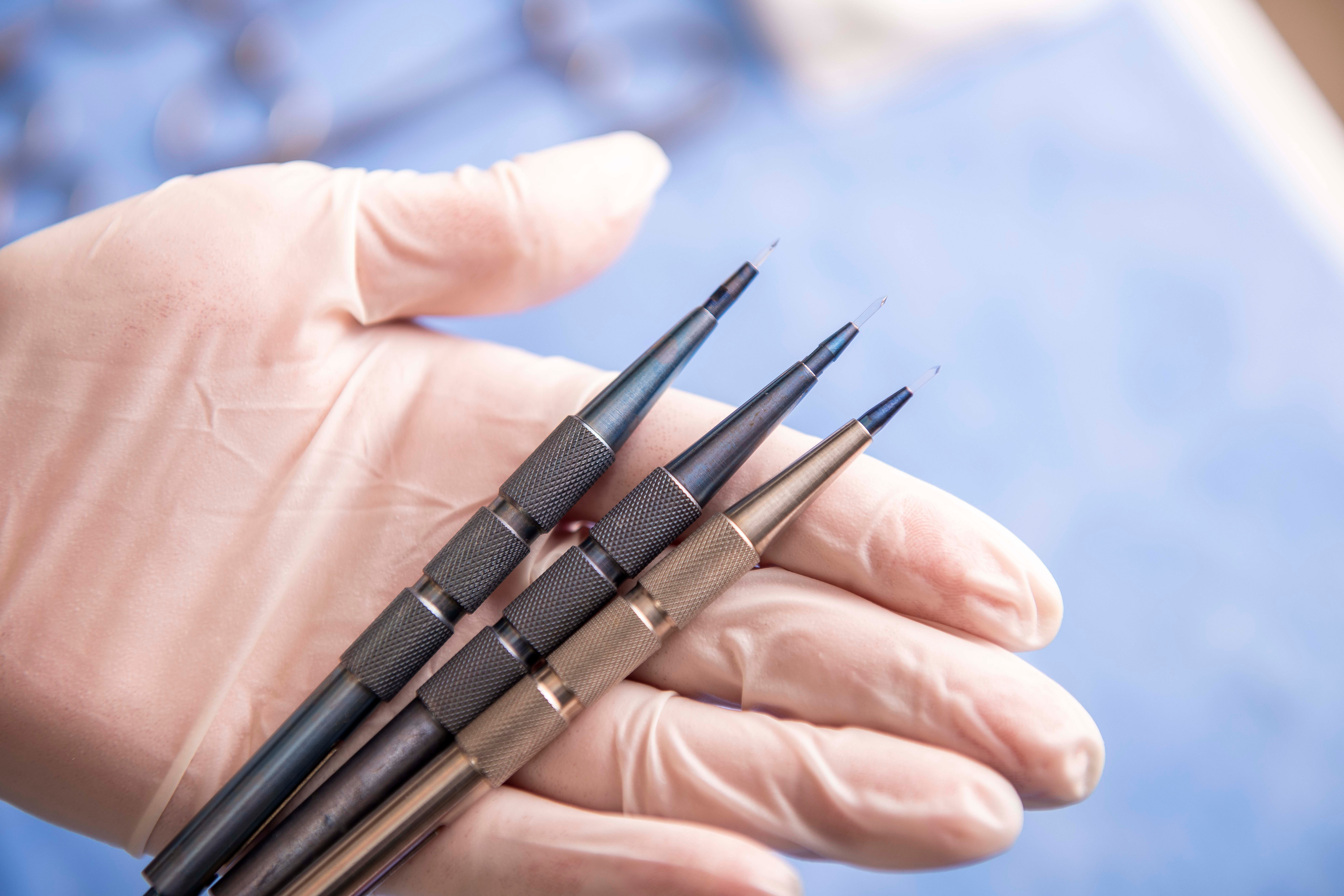Selecting the right hair transplant surgeon is a crucial step in ensuring a successful and satisfying hair transplantation process. Hair-related issues can escalate with age or due to genetic factors, leading to significant hair loss and extensive scalp issues in some individuals. Consequently, many individuals seek out the finest hair transplant clinics or the Best Hair Transplant Surgeon to address these concerns, aiming for results that are both satisfactory and enduring. The impact of baldness or partial hair loss extends beyond affecting facial aesthetics; it can significantly influence an individual’s mood and self-confidence.
Fortunately, contemporary advancements in hair transplant techniques offer effective solutions to this problem. If you find yourself contemplating a hair transplant but are uncertain about which clinic or doctor to choose, this article will guide you through the key characteristics of the right hair transplant surgeon and the ideal hair clinic
Exactly as you dream of them.

Why Is It Essential to Find a Specialized Doctor?
Because the result of a hair transplant is both highly visible and permanent.
When the hair transplant is successful, it will dramatically transform your appearance, and the outcome will last forever, since the newly transplanted hair will not fall out again. But if the procedure is unsuccessful, unnatural, or sparse, then the change will be dramatically negative — and equally permanent. And one must remember: the results of a failed hair transplant cannot be hidden, nor will they “improve on their own” over time. Unlike an unsightly scar on the chest from open-heart surgery, which can easily be concealed under clothing, a failed follicular transplant can only be hidden if you constantly wear a hat or a wig. Every time someone looks in the mirror, it will remind them of their mistake in not choosing the right, specialized doctor. And besides the fact that it is not easily hidden, an unnatural result from a poor hair transplant is even harder to correct — and even harder for the patient to forget, as it shatters their already fragile psychological well-being. So, if you don’t want to end up wearing a hat, a wig, or shaving your head to hide an unnatural hair transplant performed by an inexperienced or unqualified doctor — or worse, a non-doctor — there is ONE thing you must do: Conduct thorough research before trusting anyone with your head!
And most importantly:
Do not rush into deciding whom to trust!

Why You Shouldn’t Make a Hasty Decision
Hair transplantation is not an emergency surgery, nor even a necessary surgery, despite how it is often presented by opportunists or sales professionals who want you to “book” your hair transplant “here and now”!
Remember, you have as much time as you need to choose your doctor calmly.
Nothing will change if you spend a few extra weeks researching before making a decision that will stay with you for life.
In hair transplantation, the doctor’s role is not to convince the patient that they need the procedure (as is the case with essential surgeries that correct a health issue).
In hair transplantation, it is the patient who must be convinced that they can trust the doctor in order to undergo the procedure.
So, do your research and take your time!
It will be one of the most important investments of time you will ever make in your life.
The power of choosing the right doctor is in your hands!
Why is a hair transplant different from any other surgical procedure?
What criteria should be used when choosing a hair transplant doctor?
Before choosing a doctor for your hair transplant, it is essential to be certain about the following issues:
-
The doctor’s training and experience,
-
The way in which he/she practices the profession,
-
How comfortable you feel with him/her.
The smartest and most effective strategy you can use is to prepare a questionnaire that includes all the questions regarding the hair transplantation procedure, as well as questions about the doctor’s scientific credentials and how up-to-date his/her knowledge is.
This questionnaire can be:
-
Taken with you when you visit the doctor,
-
Or sent by mail or electronically, if the doctor is in another city or country.
Do not think of this as excessive. Having such a questionnaire is absolutely necessary.
As for the level of comfort with the doctor, you will judge it by whether you felt that the doctor carefully listened to all your questions, answered them satisfactorily, addressed all possible approaches and treatments, was willing to discuss every option, and above all, whether at the end of the initial consultation you had the sense that you and the doctor share a compatible patient/doctor relationship.
Why should I go through this whole process?
The field of hair transplantation is NOT legally regulated, neither in Greece nor abroad.
This means that doctors of any specialty and any level of experience are allowed to perform hair transplants.
So, one may find surgeons who are specialized, with decades of experience and official certifications, all the way down to unqualified doctors who have just graduated from medical school.
Even worse, in many cases hair transplants with the FUE technique are performed by NON-DOCTORS, such as nurses or even hairdressers!
It’s true!
Especially FUE hair transplant procedures—which are generally expensive and carry little risk of complications—are often attempted by inexperienced and untrained doctors, motivated solely by profit. Of course, it is not at all wrong for a doctor to seek profit from his work, as long as he knows how to perform it perfectly, has the knowledge and experience, and possesses the necessary specialization.
Unfortunately, many do not, yet they advertise themselves and go on to perform hair transplants with results visible on the street—men with shaved heads and huge scars from failed procedures. Even worse, there are non-doctors (nurses or even hairdressers!) who present themselves in clinics as “doctors” and carry out FUE hair transplants.
In fact, the ISHRS (International Society of Hair Restoration Surgery) issued a Consumer Alert in January 2017 regarding the “epidemic” of serious complications in hair transplant surgeries when performed by non-doctors!
Since official legislation cannot yet protect you, it is your own responsibility to safeguard yourself from the unqualified, the incompetent, and the opportunists.
“Isn’t it a bit excessive for me to ask the doctor questions?”
No, absolutely not.
On the contrary, unlike other procedures, in hair transplantation it is the patient who should be “interviewing” the doctor—not the other way around.
This is because, unlike most other surgeries, hair implantation is not a Necessary Operation, but an Elective Procedure, as we have explained.
Firstly, as mentioned, you must protect yourself from the unqualified, the inexperienced, and the opportunists in the field who are motivated solely by profit.
Secondly, you need to be aware of the following:
-
Hair follicle transplantation has a history of only about 60 years, unlike other surgical specialties with an official history of 2–3 centuries, dating back to the discovery of General Anesthesia.
-
Out of those 60 years, for 40 years hair follicle transplantation has been applied more and more widely.
-
Out of those 40 years, 30 have produced results ranging from mediocre to catastrophic, because the techniques and tools were primitive.
-
Only in the last 15 years has the situation improved, and only in the past 6–7 years can one truly speak of successful hair transplant procedures, with naturalness and density.
Therefore, unlike other surgical fields with centuries of history, evolution, and stability, knowledge in hair follicle transplantation is relatively recent. It has not yet been fully disseminated, assimilated, or applied by all doctors who “claim” to practice hair transplantation.
The patient must find the well-informed doctor who applies the latest knowledge.
And this can only be achieved through thorough and extensive “market research.”
At Anastasakis Hair Clinic, only the latest methods of hair follicle transplantation are applied, from the very moment their safety and effectiveness have been certified. The most advanced tools and technical means are used, and the staff is continuously trained and updated with the most modern techniques.
Why should you have a questionnaire for the doctor?
This questionnaire is intended to help the patient get to know the doctor better and decide whether or not he can be trusted.
With this questionnaire, the patient will be able to exclude a large number of surgeons and increase the chances of choosing someone suitable for his case.
For doctors whom the patient cannot visit due to distance, the questionnaire can be sent individually to each one, stating that the patient is interested in undergoing a hair follicle transplantation procedure.
But be aware: most of these questionnaires will never be returned.
Here’s why:
-
Some doctors may believe it was sent by a competitor looking for a “weakness” in the doctor.
-
Some may think it was sent by a dissatisfied patient seeking information to take legal action against them.
-
Some doctors prefer their patients not to be so well-informed and cautious, and especially do not want to provide information—and thus commitments—in writing, for “dubious” reasons.
-
Some may not respond simply because they are too busy and will not consider it a priority.
-
Some doctors might even find questions offensive if they concern their level of knowledge and training, whether lawsuits have been filed against them for medical acts, etc.
Do you really want any of these doctors operating on your head?
What to do if the questionnaire is not answered
ALL those who do not respond must be irrevocably excluded, simply because they did not consider it a priority—while in reality, it is part of their job.
Anyone who fails to respond for the following reasons:
-
Fears competitors (a true professional does not fear competition but instead provides competitive services),
-
Fears past patients (no one wants a doctor with disappointed patients he is afraid of),
-
Prefers future patients to remain uninformed and unaware (no one wants such a doctor either),
-
Believes that a patient’s “suspicion” toward the doctor who will operate on him, and the outcome of a procedure that will be expensive and lifelong, is not worth the 10 minutes needed to complete the questionnaire (no one wants a doctor who does not respect the patient’s concerns and won’t devote 10 minutes of his time),
-
Is so arrogant that he thinks he owes “nothing to anyone” and that it is enough to “claim” he knows how to perform hair transplants and that “all his clients are satisfied.”
Simply put, such doctors are NOT suitable for you, no matter how “famous” they may be.
On the other hand, the doctors who take the time to answer prove that they respect your concerns, acknowledge your caution, and have nothing to hide.
Of course, some of the answers may be false.
In that case, the completed questionnaire can easily be used in court by the patient against the doctor, if the patient believes the doctor is responsible for a poor outcome after the procedure.
Additionally, you can use the questionnaire during your consultation with the doctor, to insist on certain points you consider important and to see to what extent the answers hold true.
At Anastasakis Hair Clinic, we are pleased to have demanding and well-informed patients, to answer all their questions, and to provide them with information on every matter of concern, with their best interest as our sole priority.
Where to find hair transplant surgeons?
First, get informed about the doctors who practice hair transplantation in your city. Special attention is needed when choosing both the place and the person, and remember that hair follicle transplantation is a medical procedure and can only be performed in legally licensed clinics or multi-clinics, authorized according to the law.
It is not excessive to look for doctors beyond your city or even in another country! If the cost of a hair transplant is €5,000, what difference does it make if you spend another €1,000 on travel expenses, if the result is truly better?
By the same logic, you should not exclude doctors even in your own neighborhood. It is not unlikely that a doctor in your area or city may prove to be just as good as internationally renowned colleagues.
Check the websites of the two largest scientific organizations worldwide:
-
The International Society of Hair Restoration Surgery (ISHRS): www.ishrs.org
-
The American Board of Hair Restoration Surgery (ABHRS): www.abhrs.org
Be cautious with friends or acquaintances who strongly recommend a particular doctor, especially if they themselves have not undergone a procedure with him. (It is very common for there to be a hidden professional relationship with the doctor and for them to receive a “commission” when they refer someone.) Even if they have had a procedure with that doctor, examine their results carefully and do not settle for vague explanations like “he’s the best” or “he’s top.”
Always have your questionnaire with you.











